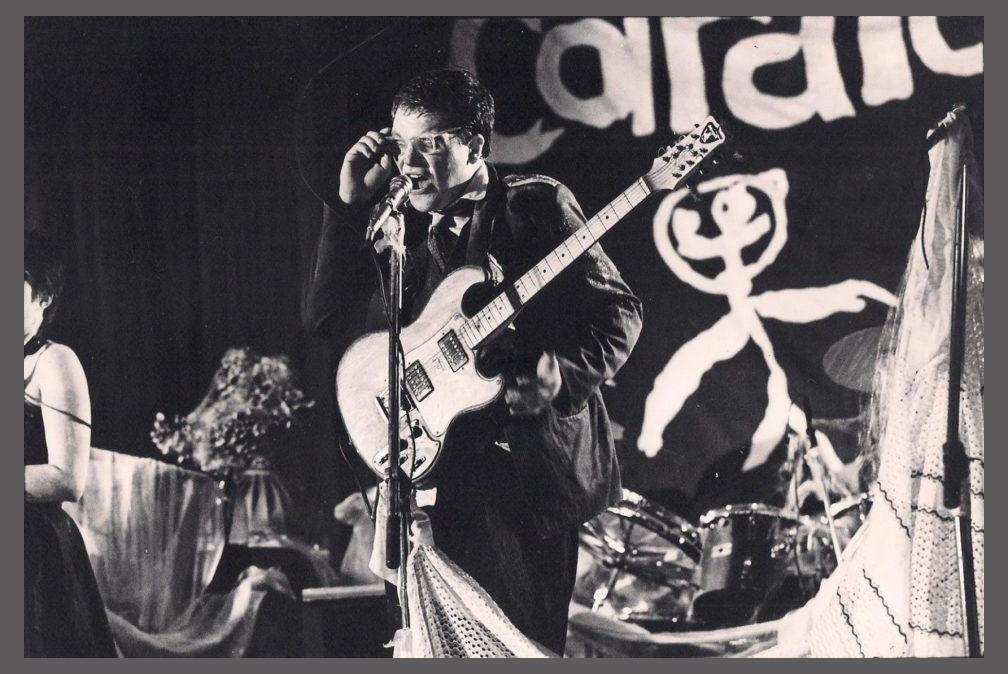 Cardiacs
Cardiacs
Cardiacs: The Eccentric Geniuses of the Avant-Garde
In the enigmatic realm of progressive rock, Cardiacs stand as a singular entity, their music a labyrinthine tapestry that defies categorization. Led by the visionary Tim Smith, this eccentric ensemble has pushed the boundaries of what is musically possible, forging a legacy marked by both brilliance and controversy.
Genesis and Early Challenges
Cardiacs emerged in the mid-1970s in Southampton, England, as a loose collective known as The Cardiac Arrest. With Smith at its helm, the band's early sound was characterized by an idiosyncratic blend of Canterbury progressive rock, punk, and avant-garde experimentalism. Despite their innovative approach, Cardiacs faced significant challenges in gaining recognition. Their music was deemed too unconventional for mainstream radio, and they struggled to find a permanent record label.
Breakthrough and Eccentricity
In 1980, Cardiacs signed with the independent label Alphabet Records, which released their debut album, "Sing to God." The album's complex structures, enigmatic lyrics, and Smith's distinctive vocal style garnered critical acclaim but limited commercial success. Over the next decade, Cardiacs released a series of albums that further cemented their reputation as musical mavericks. "The Seaside" (1984) featured their signature song "Dirty Boy," a haunting ballad about a child's descent into madness. "On Land and in the Sea" (1989) showcased their eclecticism, incorporating elements of jazz, folk, and experimental electronica.
Controversies and the Shadow of Syd Barrett
Cardiacs' unconventional approach often drew both praise and criticism. Their live performances were known for their chaotic energy and Smith's enigmatic stage persona. The band's lyrics, which often delved into themes of mental illness and existential angst, were occasionally met with accusations of morbidity. Some critics compared Smith to Syd Barrett, the former Pink Floyd frontman who suffered from mental health issues.
Discography and Notable Collaborations
Throughout their career, Cardiacs released a prolific number of albums, including "Songs for Ships and Irons" (1982), "Big Ship" (1987), "Heaven Born and Ever Bright" (1996), and "Sing to God" (2001). They also contributed to various soundtracks and collaborated with artists such as the avant-garde composer Robert Wyatt and the Swedish psychedelic band Dungen.
Members and Tragic Loss
Cardiacs featured a revolving lineup of musicians over the years, with Smith remaining the constant creative force. Notable members included drummer Dominic Luckman, keyboardist Mark Jenkins, and guitarist Jon Poole. In 2005, tragedy struck the band when bassist Colin Hatcher passed away from a heart attack at the age of 41. Hatcher's death marked a significant loss for Cardiacs and cast a shadow over their future.
Legacy and Influence
Despite the challenges they faced, Cardiacs left an enduring mark on the music world. Their innovative approach and fearless experimentation continue to inspire younger generations of musicians. Bands such as Radiohead, Blur, and the Mars Volta have acknowledged Cardiacs' influence on their own sound.
In conclusion, Cardiacs remain an enigmatic and influential force in progressive rock history. Their music is a testament to the boundless possibilities of creativity and the enduring appeal of the avant-garde.
In the enigmatic realm of progressive rock, Cardiacs stand as a singular entity, their music a labyrinthine tapestry that defies categorization. Led by the visionary Tim Smith, this eccentric ensemble has pushed the boundaries of what is musically possible, forging a legacy marked by both brilliance and controversy.
Genesis and Early Challenges
Cardiacs emerged in the mid-1970s in Southampton, England, as a loose collective known as The Cardiac Arrest. With Smith at its helm, the band's early sound was characterized by an idiosyncratic blend of Canterbury progressive rock, punk, and avant-garde experimentalism. Despite their innovative approach, Cardiacs faced significant challenges in gaining recognition. Their music was deemed too unconventional for mainstream radio, and they struggled to find a permanent record label.
Breakthrough and Eccentricity
In 1980, Cardiacs signed with the independent label Alphabet Records, which released their debut album, "Sing to God." The album's complex structures, enigmatic lyrics, and Smith's distinctive vocal style garnered critical acclaim but limited commercial success. Over the next decade, Cardiacs released a series of albums that further cemented their reputation as musical mavericks. "The Seaside" (1984) featured their signature song "Dirty Boy," a haunting ballad about a child's descent into madness. "On Land and in the Sea" (1989) showcased their eclecticism, incorporating elements of jazz, folk, and experimental electronica.
Controversies and the Shadow of Syd Barrett
Cardiacs' unconventional approach often drew both praise and criticism. Their live performances were known for their chaotic energy and Smith's enigmatic stage persona. The band's lyrics, which often delved into themes of mental illness and existential angst, were occasionally met with accusations of morbidity. Some critics compared Smith to Syd Barrett, the former Pink Floyd frontman who suffered from mental health issues.
Discography and Notable Collaborations
Throughout their career, Cardiacs released a prolific number of albums, including "Songs for Ships and Irons" (1982), "Big Ship" (1987), "Heaven Born and Ever Bright" (1996), and "Sing to God" (2001). They also contributed to various soundtracks and collaborated with artists such as the avant-garde composer Robert Wyatt and the Swedish psychedelic band Dungen.
Members and Tragic Loss
Cardiacs featured a revolving lineup of musicians over the years, with Smith remaining the constant creative force. Notable members included drummer Dominic Luckman, keyboardist Mark Jenkins, and guitarist Jon Poole. In 2005, tragedy struck the band when bassist Colin Hatcher passed away from a heart attack at the age of 41. Hatcher's death marked a significant loss for Cardiacs and cast a shadow over their future.
Legacy and Influence
Despite the challenges they faced, Cardiacs left an enduring mark on the music world. Their innovative approach and fearless experimentation continue to inspire younger generations of musicians. Bands such as Radiohead, Blur, and the Mars Volta have acknowledged Cardiacs' influence on their own sound.
In conclusion, Cardiacs remain an enigmatic and influential force in progressive rock history. Their music is a testament to the boundless possibilities of creativity and the enduring appeal of the avant-garde.